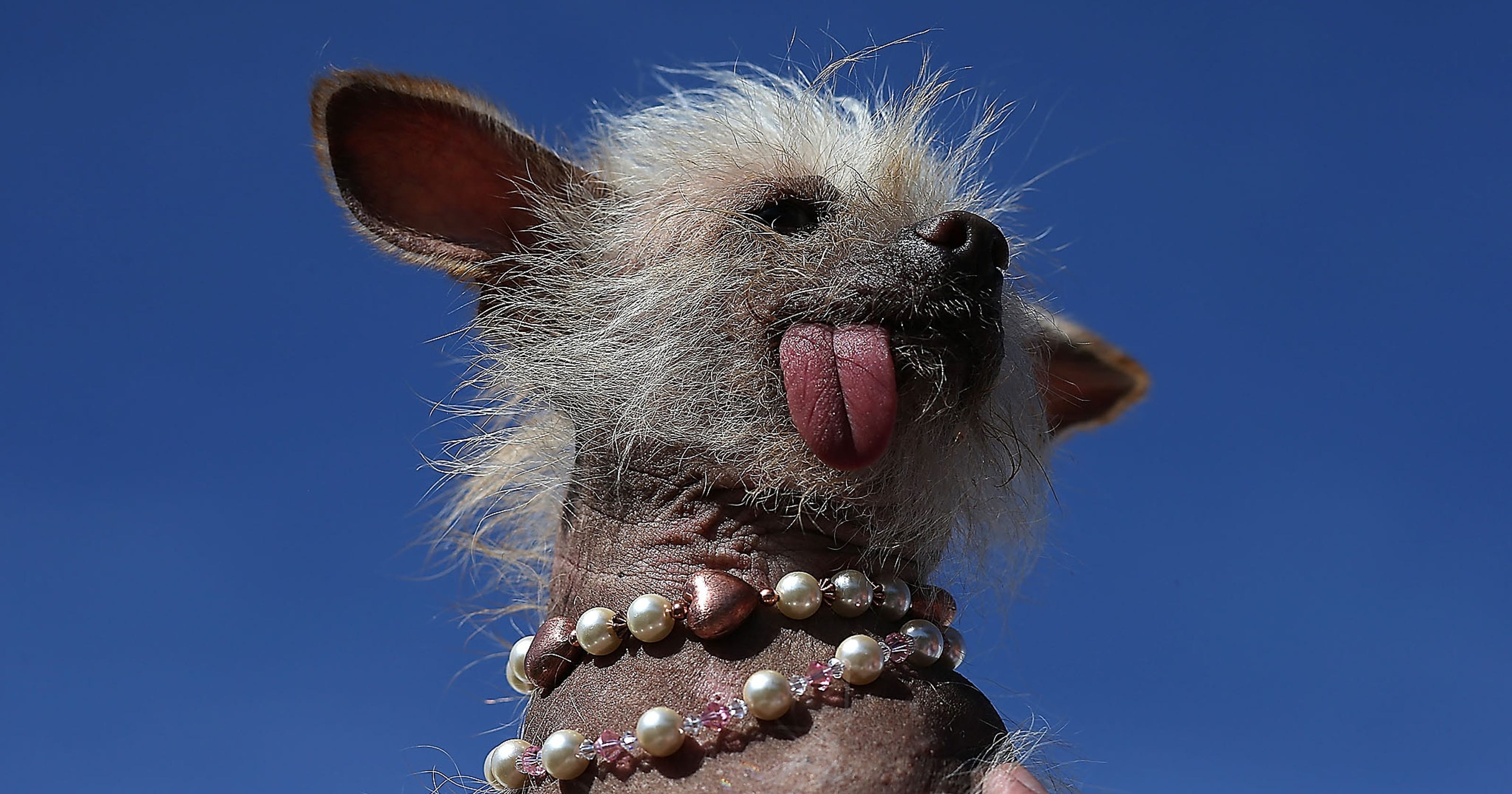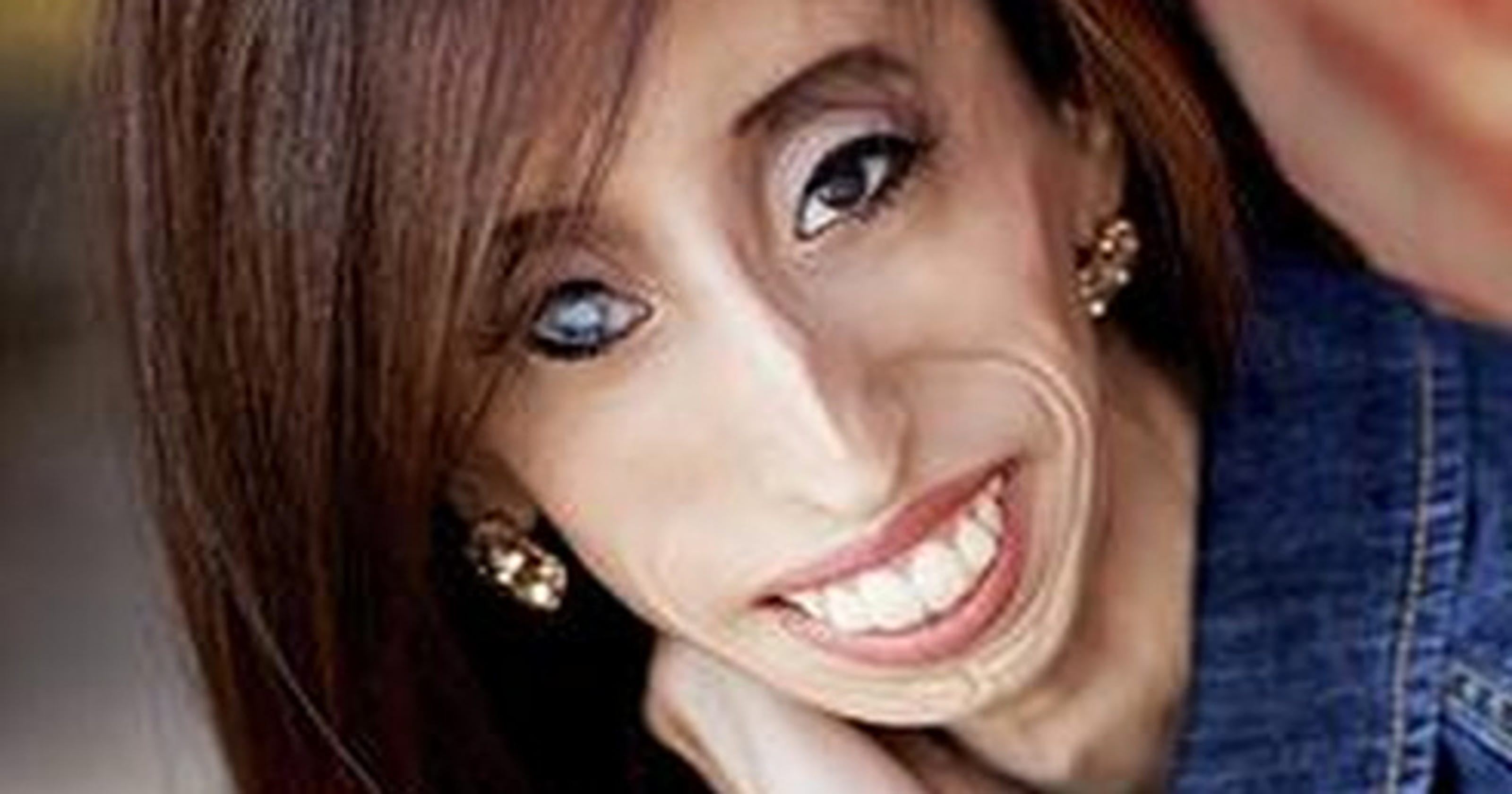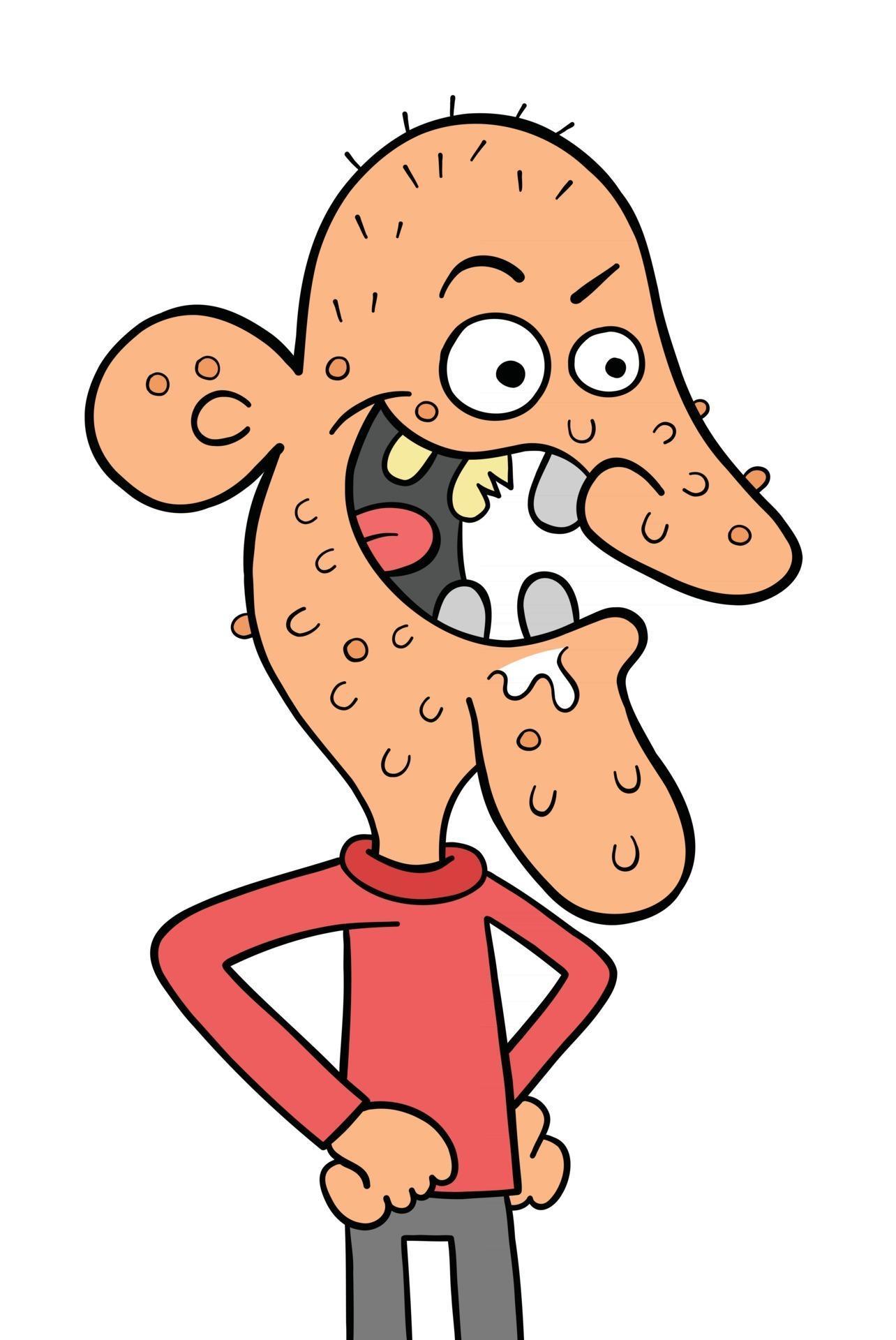Ugly Person: Breaking Stereotypes And Embracing Inner Beauty
You know what's kinda messed up? We live in a world where people are judged based on how they look. Yeah, that's right, society loves to label someone as an "ugly person" just because they don't fit some arbitrary beauty standard. But guess what? It's time to flip the script and start looking beyond the surface. Today, we're diving deep into this topic and uncovering the truth behind the label of "ugly person." So buckle up, because we're about to challenge everything you thought you knew about beauty and worth.
Now, let's be real for a second. At some point in our lives, most of us have either been called "ugly" or have called someone else that. It's a word that carries so much weight, and it can leave scars that last a lifetime. But here's the thing: beauty isn't just about how someone looks on the outside. It's about who they are on the inside—their kindness, their strength, and their uniqueness. And that's what we're here to talk about today.
This conversation isn't just about feeling good or boosting self-esteem. It's about understanding the impact of labels like "ugly person" and how they affect people's lives. Whether you've been on the receiving end of those words or you've been the one dishing them out, this article is for you. We're going to explore what it means to be labeled "ugly," why it happens, and most importantly, how we can change the narrative.
- Omg Girlz Reginae The Rise Of A Digital Sensation
- Edward Cullen And Cedric Diggory A Crossworld Comparison Thatll Blow Your Mind
Defining the Term: What Makes Someone an "Ugly Person"?
So, let's start with the basics. When we say "ugly person," what exactly do we mean? Is it someone with acne? Someone who's overweight? Or maybe someone who just doesn't conform to society's idea of beauty? The truth is, there's no one-size-fits-all definition of "ugly." It's all subjective, and what one person finds unattractive, another might find beautiful.
But here's the kicker: the concept of "ugly" is often tied to societal norms and media representations. We're bombarded with images of "perfect" people every day, and it's easy to start comparing ourselves to those unrealistic standards. The thing is, those standards are designed to make us feel inadequate so that we'll spend money on products and services to "fix" ourselves. It's a vicious cycle, and it's time to break free from it.
How Society Shapes Our Perception of Beauty
Society plays a huge role in shaping our perception of beauty. From a young age, we're taught to value certain physical traits over others. Whether it's through magazines, movies, or social media, we're constantly exposed to images of people who are considered "beautiful." But what about everyone else? What happens to the people who don't fit into that narrow definition of beauty?
- Hayden Christensen And Rachel Bilson The Ultimate Story Of Hollywoods Golden Couple
- Sabrina Ionescu And Kobe The Untold Story Of Basketball Legacy And Inspiration
- They often feel like they don't measure up.
- They might struggle with self-esteem and confidence.
- They could face discrimination or prejudice in various areas of life.
It's not fair, and it's not right. But the good news is that we have the power to change the way we view beauty. We can start by recognizing that everyone is beautiful in their own way, regardless of how they look on the outside.
Psychological Impact of Being Called "Ugly"
Being called "ugly" can have a serious impact on a person's mental health and well-being. It's not just a harmless comment or insult—it can leave lasting scars that affect how someone sees themselves and interacts with the world around them. Let's take a closer look at some of the psychological effects of being labeled as an "ugly person."
Low Self-Esteem and Confidence Issues
One of the most common effects of being called "ugly" is low self-esteem. When someone constantly hears that they're not good enough or attractive enough, they start to internalize those messages. It can lead to a lack of confidence in various areas of life, from relationships to career opportunities.
But here's the thing: self-esteem isn't just about how someone looks. It's about how they feel about themselves as a whole person. And that's something that can be built up over time with the right mindset and support system.
Physical Traits Often Associated with "Ugly Person"
Let's talk about some of the physical traits that are often associated with being called "ugly." Keep in mind that these are just societal stereotypes, and they don't define a person's worth or value. Some of the traits that people might label as "ugly" include:
- Acne or other skin conditions
- Being overweight or underweight
- Hair loss or unusual hair growth patterns
- Unconventional facial features
But here's the thing: these traits don't make someone any less valuable as a human being. In fact, they're often what make someone unique and interesting. Embracing those traits can be a powerful way to reclaim your identity and take back control of how you see yourself.
Embracing Inner Beauty: Beyond Physical Appearance
Okay, so we've talked a lot about how society views beauty and the impact of being called "ugly." But now it's time to shift the focus to something much more important: inner beauty. Inner beauty is all about who you are as a person—your values, your passions, and your character. And guess what? It's way more important than how you look on the outside.
Characteristics of Inner Beauty
So, what exactly makes someone beautiful on the inside? Here are a few key characteristics:
- Kindness and compassion
- Integrity and honesty
- Empathy and understanding
- Confidence and self-assurance
When you focus on developing these qualities, you start to see yourself in a whole new light. And the best part? Inner beauty is something that anyone can cultivate, no matter what they look like on the outside.
Challenging Beauty Standards: Redefining "Ugly Person"
It's time to challenge the beauty standards that have been holding us back for so long. We need to redefine what it means to be an "ugly person" and start celebrating diversity in all its forms. Here are a few ways we can do that:
- Encourage body positivity and self-acceptance
- Support diverse representation in media and advertising
- Speak out against discrimination and prejudice based on appearance
By taking these steps, we can create a world where everyone feels valued and appreciated for who they are, not just how they look.
Real-Life Stories: Overcoming the Label of "Ugly Person"
Let's take a moment to hear from some real people who have overcome the label of "ugly person." Their stories are inspiring and show that it's possible to rise above societal expectations and embrace your true self.
Story 1: Sarah's Journey to Self-Acceptance
Sarah struggled with low self-esteem for years because of comments about her weight. But after joining a body positivity group, she learned to love herself just as she is. "I realized that my worth isn't tied to how I look," she says. "It's about how I treat others and how I live my life."
Story 2: John's Battle with Acne
John dealt with severe acne during his teenage years, which made him feel like an outsider. But through therapy and support from friends, he learned to focus on his inner qualities instead of his appearance. "I used to think that my acne defined me," he says. "But now I know that it's just a small part of who I am."
Scientific Perspective: Why We Find Some People "Ugly"
From a scientific standpoint, there are a few reasons why we might find someone "ugly." It often comes down to evolutionary psychology and our innate desire to find mates who are healthy and genetically fit. But here's the thing: those instincts don't always serve us well in modern society. We need to recognize that beauty is subjective and that everyone has their own unique appeal.
Studies on Perception of Beauty
Research has shown that our perception of beauty is influenced by a variety of factors, including cultural background, personal experiences, and media exposure. For example, a study published in the Journal of Personality and Social Psychology found that people tend to find symmetrical faces more attractive. But that doesn't mean that asymmetrical faces are any less beautiful—it just means that our brains are wired to notice certain patterns.
Conclusion: Time to Change the Narrative
So, there you have it. The concept of the "ugly person" is a construct that we need to dismantle. It's time to stop judging people based on how they look and start celebrating the diversity of human experience. By focusing on inner beauty and challenging societal norms, we can create a world where everyone feels valued and appreciated.
Here's what you can do to make a difference:
- Practice self-acceptance and focus on your inner qualities
- Support others in their journey to self-love
- Challenge beauty standards and promote diversity
And remember, you're not alone in this. There are millions of people out there who are fighting the same battles and striving to make the world a better place. So let's do this together, one step at a time.
Table of Contents
- Defining the Term: What Makes Someone an "Ugly Person"?
- Psychological Impact of Being Called "Ugly"
- Physical Traits Often Associated with "Ugly Person"
- Embracing Inner Beauty: Beyond Physical Appearance
- Challenging Beauty Standards: Redefining "Ugly Person"
- Real-Life Stories: Overcoming the Label of "Ugly Person"
- Scientific Perspective: Why We Find Some People "Ugly"
Let's keep the conversation going! Leave a comment below and share your thoughts on this topic. And don't forget to check out our other articles for more insights and inspiration.



Detail Author:
- Name : Dr. Remington Larson MD
- Username : cecil.schneider
- Email : doris24@yahoo.com
- Birthdate : 1997-02-19
- Address : 721 Cruickshank Brook Apt. 302 New Jessyburgh, NC 54447-1931
- Phone : +16789632572
- Company : Cruickshank, Marvin and Reinger
- Job : Municipal Court Clerk
- Bio : Magni amet mollitia laboriosam quam exercitationem. Quas autem enim sit quas earum tempore. Tenetur magnam dolores sapiente corrupti corrupti et earum.
Socials
tiktok:
- url : https://tiktok.com/@alberta_id
- username : alberta_id
- bio : Numquam voluptates est accusantium est aliquid libero.
- followers : 4553
- following : 1689
twitter:
- url : https://twitter.com/murray2017
- username : murray2017
- bio : Molestiae facilis et et illo porro. Corporis quae quo reiciendis. Ea et natus aliquid in maiores.
- followers : 2576
- following : 2291
linkedin:
- url : https://linkedin.com/in/alberta_murray
- username : alberta_murray
- bio : Debitis possimus repellat illo sit qui excepturi.
- followers : 6598
- following : 340